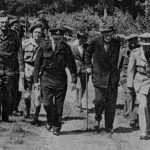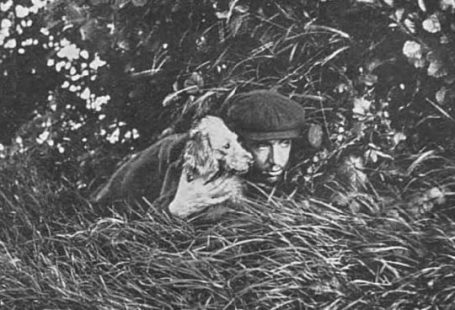
The British Newspaper Archive is excited to present a guest blog by David Cornforth. David is the author if Exeter Pubs, which offers a captivating glimpse into the history of some of Exeter’s most famous pubs. He also created the local history website Exeter Memories.
When I became interested in local history a dozen years ago, I read many books, and spent much time in local archives trawling bound copies of newspapers and other documents. My interest expanded into a website about my local town, Exeter, as I researched the history of buildings, streets, industries, pubs, events and more. To differentiate from much of what had been written before, I like to include trivia and social history, both of which are found in abundance in the local newspapers. Exeter is fortunate in having a private library that has most of its local newspapers in bound format. I relied on trawling these volumes, but unfortunately, a bound volume of a local paper has no index, nor is searchable, so when the British Library offered its collection of local newspapers online, in a searchable form through The British Newspaper Archive, I immediately subscribed.
Pubs
One of my favourite topics is local pubs, and their history. My website has a substantial section on pubs and hotels. It is easy enough to compile a list of landlords from trade directories, but it is hardly compulsive reading. Local newspapers report what is going on in the community; the news from the local courts, drunkenness, murders, fights and tragic events. I have come across one story about a bullock careering into the landlord’s breakfast room, scattering the family and eyeing the marmalade; the writers of 19th century newspapers had a humorous turn of phrase, that is often worth a quote.

In the 19th Century, coroner’s courts would use the closest public house for inquests into deaths. Pubs by canals would have inquests into drownings, while others in poor suburbs would have inquests into poisoning, accidents and death in bed. One local pub was the venue for the inquest into the death of a baby that was the subject of a notorious baby farming case, with lurid details about the state of the corpse. The pubs section of my website has expanded into a book on the history of 50 local public houses.
Search tips
It took me some time to get the hang of searching. Unless I am searching for an event that is of national importance, I narrow down my search to the newspapers to my county and city, although stories were often copied by newspapers in other the areas. The hints and tips on the BNA site are worth reading. I often put a – (minus) in front of a term to remove it from finds. For example, ““red lion” -barnstaple” will remove all finds containing ‘barnstaple’. It may seem obvious, but it can remove hundreds of unnecessary pages to look through. It can be helpful to add the street for a building, in the search term. Adverts are useful for researching buildings, as sales and lets will be found, often with a full description of the property. In some instances, I like to change the order of results to the earliest first, thus making it easier to find the early history of a building. And don’t forget to try searching for alternate spellings for names.
First World War

I do a monthly column covering a hundred years ago, which is obviously the period of the First War. Local newspaper gave a good view of the war effort on the home front, and many national problems are echoed locally. Food shortages caused by the U-boat blockade, saw the growth of allotments, and convictions for breaking the rationing rules. The impact of wounded soldiers from VA hospitals on the locals are also covered by the papers, often through reports on the locals running events to entertain the wounded troops. Families that had several sons serving in the forces were a popular story, and often tragic when several were killed on active duty. Often a story will be included because it has resonance on our 21st Century life. One example is the coverage of whether nurses be offered a pay rise during the austere times of war. Because many reports are far too long to reproduce in full, I search the regular columns that give local news in a potted form. “The Week in Exeter” is one such column, which provides a lot of material, and comment on local events.
Since The British Newspaper Archive came online, I have found the diversity of local history I have researched has expanded enormously, often in directions that conventional history often does not touch. Exeter has the luxury of having up to five local newspapers listed on the site, allowing comparisons be made for the same story. Although some are limited to certain years, I have noticed that news pages are added every now and then, and the archive is continually growing. I especially like the new layout, which not only looks good, but is faster.
To discover more about Exeter, search The British Newspaper Archive’s titles from the Exeter area:






